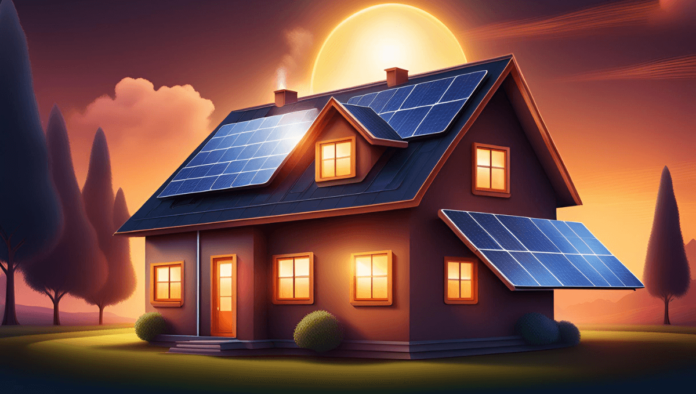Managing energy costs is crucial for homeowners seeking to save money and reduce their environmental footprint. Utility Bidder, a service provider that helps compare and switch energy suppliers, is vital in helping consumers find the best deals.
Today, we will explore assistance programs and rebates, how to qualify for and apply for them, and tips for maximizing home efficiency. Additionally, we will discuss the long-term financial and environmental benefits of these energy-saving opportunities.
Table of Content:
Table of Content
Understanding Assistance Programs
Assistance programs are designed to help homeowners, businesses, and voluntary sector organizations manage their energy bills, especially during periods of high energy use.
These programs provide financial support to qualified people, making it easier to keep homes warm in winter and cool in summer. Local authorities and suppliers often run these programs to ensure that vulnerable customers receive help.
Several types of assistance are available, such as the Cold Weather and Winter Fuel payments. These government schemes provide extra money to eligible households during cold weather. The Warm Home Discount Scheme offers a discount on electricity bills for low-income families, easing the burden of high energy costs.
Energy Star Appliances
Energy Star-rated appliances are designed to be more energy-efficient than standard models. These appliances use less electricity and water, which can significantly lower your energy bills. The benefits of using Energy Star appliances extend beyond cost savings.
These appliances also help reduce greenhouse gas emissions and other pollutants. By investing in Energy Star-rated products, you are contributing to a healthier environment. Moreover, many suppliers offer rebates on Energy Star appliances, making them an even more attractive option for homeowners looking to upgrade their homes.
How to Qualify for Energy Assistance Programs
Qualifying for energy assistance programs often depends on your income level and whether you receive certain benefits. Programs like the Warm Home Discount Scheme and the Cold Weather Payment have specific eligibility criteria. For example, you might qualify if you receive the Guarantee Credit element of Pension Credit or other income-based benefits.
To apply for these programs, you must usually provide proof of your income and benefits. This can include documentation such as pay stubs, benefit statements, or tax returns. It’s essential to check with your supplier or local authority to understand each program’s exact requirements and application process.
Applying for Rebates and Discounts
Many suppliers and authorities offer rebates and discounts to encourage homeowners to make energy-efficient upgrades. These rebates can apply to various products and services, from insulation and windows to Energy Star appliances. For instance, the Energy Bills Discount Scheme offers financial incentives for energy-efficient improvements.
To apply for these rebates, check with your supplier or local authority. They can provide information on available programs and how to apply. Often, you’ll need to submit an application form along with receipts or proof of purchase for the eligible products or services. Some programs may require a home energy audit to determine the most beneficial upgrades.
The Long-Term Financial Benefits
Investing in energy-efficient upgrades and using energy assistance programs can lead to substantial long-term savings. Additionally, energy-efficient homes often have higher resale values.
Potential buyers recognize the value of lower energy prices and are willing to pay more for energy-efficient homes. Investing in these upgrades can also increase the overall value of your property.
Environmental Benefits of Efficiency
Improving your home’s efficiency saves you money and benefits the environment. Energy-efficient homes produce fewer greenhouse gas emissions, which contribute to climate change.
Moreover, energy-efficient homes typically have a smaller carbon footprint. Reducing your home’s energy consumption positively impacts the environment. Programs like the Energy Price Guarantee and the Energy Bill Relief Scheme support these efforts by providing financial incentives for energy-saving improvements.
Tips for Maximising Energy Efficiency
Simple changes and larger investments can maximize your home’s efficiency. Here are some simple tips:
- Start with easy steps like sealing drafts around windows and doors, which can prevent heat loss and reduce your energy bills.
- Installing a programmable thermostat can also help you manage your energy use more effectively by adjusting the temperature when you’re not home.
- For more significant improvements, consider upgrading your insulation or installing energy-efficient windows. These changes can significantly improve your home’s overall efficiency.
- Switching to Energy Star appliances and using energy-efficient lighting can reduce energy consumption.
Final Words
When looking to maximize your energy savings, it’s essential to consider your energy supplier and the type of contract you have. Existing fixed-price contracts can stabilize your energy prices, protecting you from market fluctuations. However, new fixed-price contracts might offer better rates, especially if energy prices have decreased.

Utility Bidder can help you compare suppliers and contracts to find the best deal for your needs.






















































